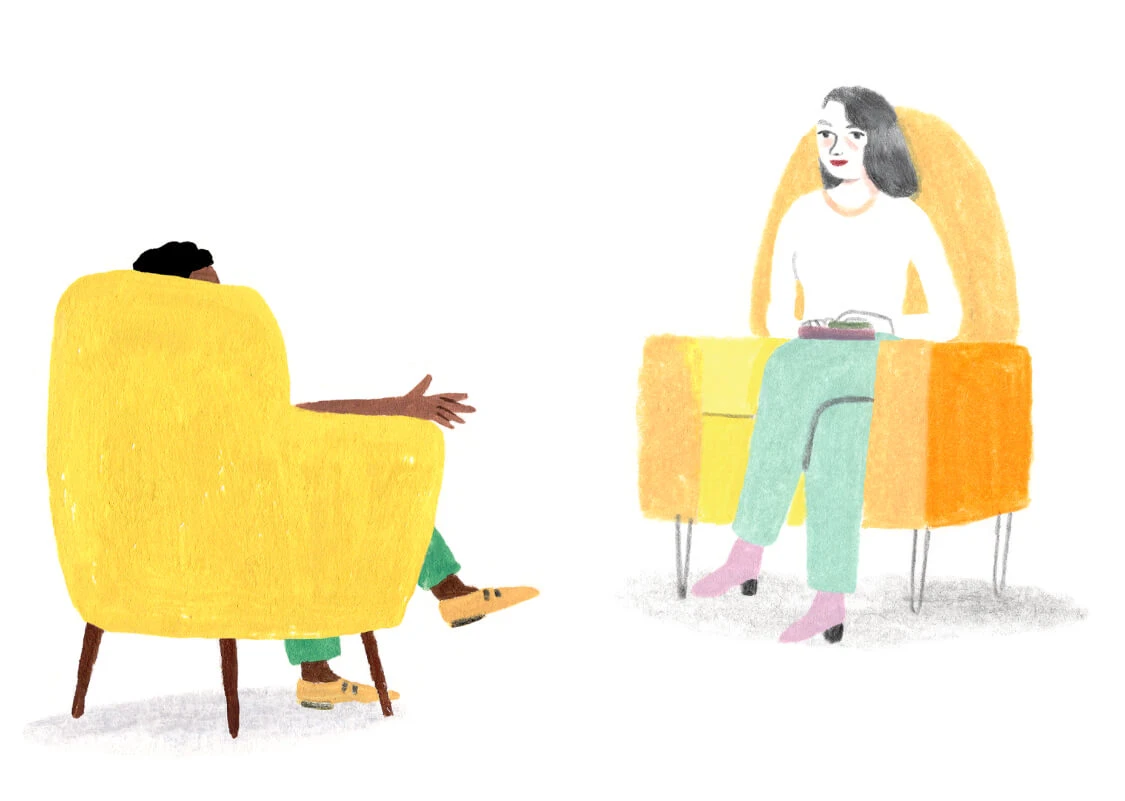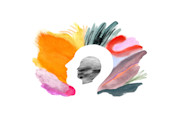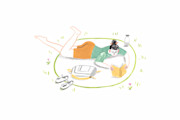What is illness anxiety disorder?
In 2013, what was previously known as hypochondriasis (considered a demeaning term) was redefined as two separate disorders: illness anxiety disorder and somatic symptom disorder. This distinction was intended to clarify and ease diagnosing.
Illness anxiety disorder is a condition in which an individual is so concerned about developing a serious illness that they may misinterpret normal bodily sensations as immediate medical crises, or be excessively worried about mild or nonexistent somatic symptoms.
This preoccupation with developing an illness can develop into a form of neurosis; it can be debilitating and take control of everyday life. Individuals with illness anxiety disorder may have high levels of anxiety about their physical health, be absorbed by the thought of having an illness for at least six months, and often either visit doctors constantly or avoid doctors completely.
Based on research by Harvard Health and the National Alliance on Mental Illness, here are four ways to help keep illness anxiety disorder symptoms in check.
1. Find a primary care physician you trust and stick with them
It’s important to discuss concerns about illness anxiety disorder with your doctor. A trained professional is the only one who can properly diagnose illness anxiety disorder.
A solid rapport with an informed practitioner can go a long way toward calming your nerves. Setting up regular appointments can prevent both unnecessary visits to specialists and emergency rooms and prevent unnecessary stress.
2. Only use sources you trust
We are all familiar with the phenomenon of self-diagnosing on the Internet: Typing in that you have a headache can leave you to believe you have a brain tumor.
So while spending hours searching every blog and forum on the internet will only cause more stress, reading solid, reliable research can actually ease your mind.
But it is imperative you only look at credible medical sources and control the urge to search more broadly.
To make sure a website is credible, look for sites that:
are government-funded or institution-backed (these will have .gov, .org., or .edu in their url).
have updated and recent information
cite academic and legitimate references, and
are reviewed by a medical professional.
Some reliable mental health digital resources include:
3. Try stress management techniques
Implementing practices like mindfulness, meditation, and exercise into your routine can help manage symptoms. Performing stress management techniques as simple as taking a moment to breath deeply can lower general anxiety levels. As stress worsens, so does illness anxiety disorder, so it’s important to reduce stress in whatever way you can.

4. Know when to get expert help
Sometimes illness anxiety disorder can be so overwhelming that you need help from a professional. Your primary care physician will be able to help you determine when you reach this point. Cognitive-behavioral therapy (CBT), a form of talk therapy, and medication have been proven as effective treatments.
Whichever coping methods you decide to use, make sure that they are effective in managing your illness anxiety. Different methods work for different people, and you need to do what works best for you. Illness anxiety disorder is highly treatable, and there are many different ways to tackle it.
Try Monarch
Need help finding a therapist with experience treating hypochondria? Check out the Monarch directory. Monarch is an online mental health directory and scheduling platform available to use free-of-charge.
The website allows you to search for therapists by name, insurance, location, specialty, in this case hypochondria, and more. Based on the selection criteria, Monarch provides patients with a list of therapists.
Take Monarch's online anxiety quiz
Have you been feeling nervous or on edge lately? Take Monarch's free, online anxiety quiz to see if you have symptoms of anxiety disorder.
American Psychiatric Association. (2013). Diagnostic and Statistical Manual of Mental disorders (5th ed., p. 315). Arlington, VA: American Psychiatric Association.
French, J. H., & Sajid Hameed. (2020, June 27). Illness anxiety disorder. Retrieved from: https://www.ncbi.nlm.nih.gov/books/NBK554399/
Halldorsson, B., & Salkovskis, P. M. (2017). Why Do People with OCD and Health Anxiety Seek Reassurance Excessively? An Investigation of Differences and Similarities in Function. Cognitive Therapy and Research, 41(4), 619–631. https://doi.org/10.1007/s10608-016-9826-5
Harvard Health Publishing. (2019, September 10). Six relaxation techniques to reduce stress - Harvard Health. Retrieved from: https://www.health.harvard.edu/mind-and-mood/six-relaxation-techniques-to-reduce-stress
How I Cope with Health Anxiety | NAMI: National Alliance on Mental Illness. (2019). Retrieved from: https://www.nami.org/Blogs/NAMI-Blog/January-2019/How-I-Cope-with-Health-Anxiety
Illness anxiety disorder - Symptoms and causes. (2018). Retrieved from Mayo Clinic website: https://www.mayoclinic.org/diseases-conditions/illness-anxiety-disorder/symptoms-causes/syc-20373782








